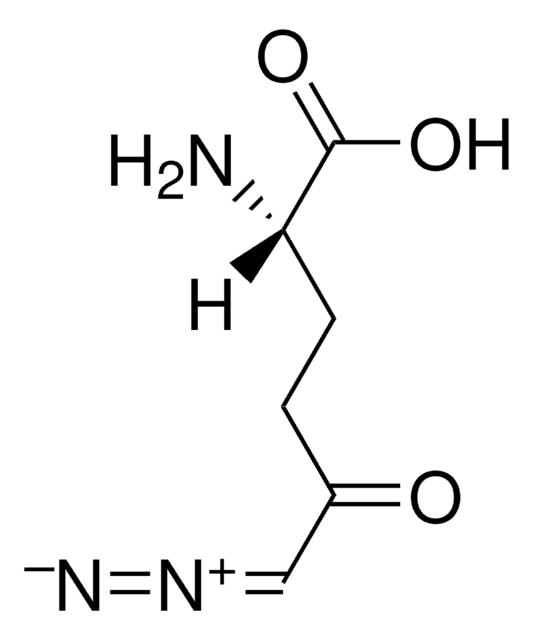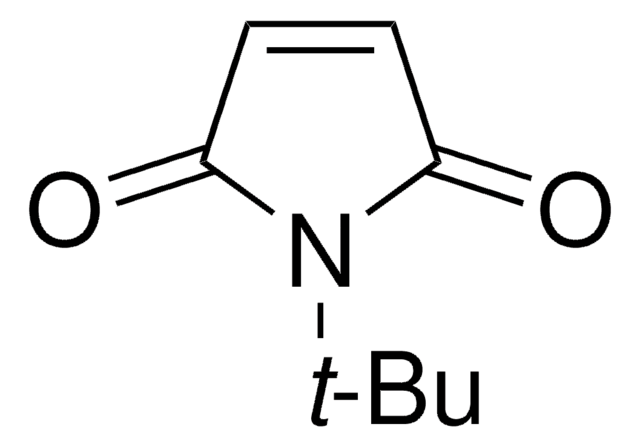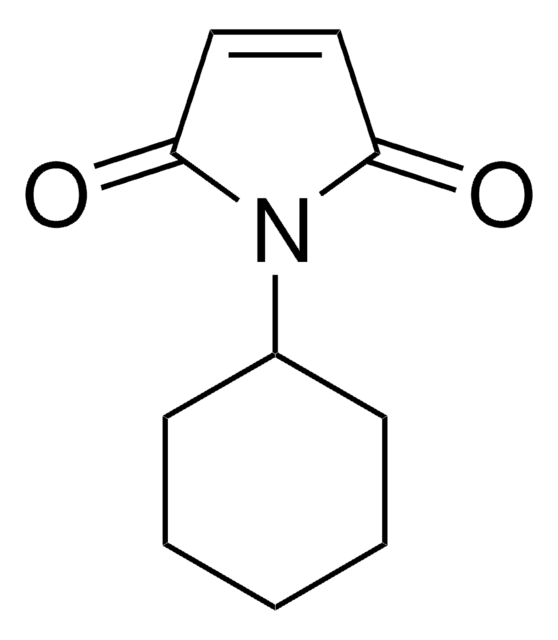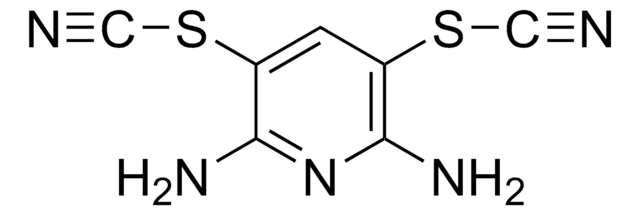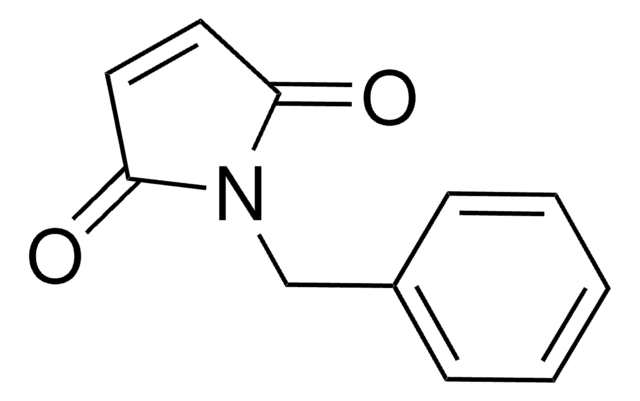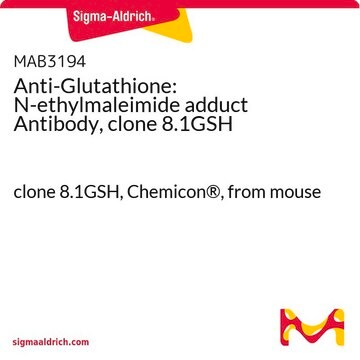E3876
N-Ethylmaleimide
crystalline, ≥98% (HPLC)
Synonym(s):
NEM
About This Item
Recommended Products
biological source
synthetic (organic)
Quality Level
Assay
≥98% (HPLC)
form
crystalline
storage condition
(Tightly closed. Dry. Keep in a well-ventilated place. )
technique(s)
activity assay: suitable
co-immunoprecipitation (co-IP): suitable
immunoblotting: suitable
color
white to faint yellow
bp
210 °C (lit.)
mp
43-46 °C (lit.)
solubility
ethanol: 50 mg/mL, clear to slightly hazy, colorless to faint yellow or tan
suitability
suitable for Western blot
application(s)
life science and biopharma
storage temp.
2-8°C
SMILES string
CCN1C(=O)C=CC1=O
InChI
1S/C6H7NO2/c1-2-7-5(8)3-4-6(7)9/h3-4H,2H2,1H3
InChI key
HDFGOPSGAURCEO-UHFFFAOYSA-N
Gene Information
human ... KCNQ2(3785) , KCNQ4(9132) , KCNQ5(56479) , SLC6A3(6531) , SLC6A4(6532)
Looking for similar products? Visit Product Comparison Guide
Application
Biochem/physiol Actions
Preparation Note
Other Notes
comparable product
Signal Word
Danger
Hazard Statements
Precautionary Statements
Hazard Classifications
Acute Tox. 2 Oral - Acute Tox. 3 Dermal - Eye Dam. 1 - Skin Corr. 1B - Skin Sens. 1
Storage Class Code
6.1A - Combustible acute toxic Cat. 1 and 2 / very toxic hazardous materials
WGK
WGK 3
Flash Point(F)
163.2 °F - closed cup
Flash Point(C)
72.9 °C - closed cup
Personal Protective Equipment
Choose from one of the most recent versions:
Certificates of Analysis (COA)
Don't see the Right Version?
If you require a particular version, you can look up a specific certificate by the Lot or Batch number.
Already Own This Product?
Find documentation for the products that you have recently purchased in the Document Library.
Customers Also Viewed
Our team of scientists has experience in all areas of research including Life Science, Material Science, Chemical Synthesis, Chromatography, Analytical and many others.
Contact Technical Service
